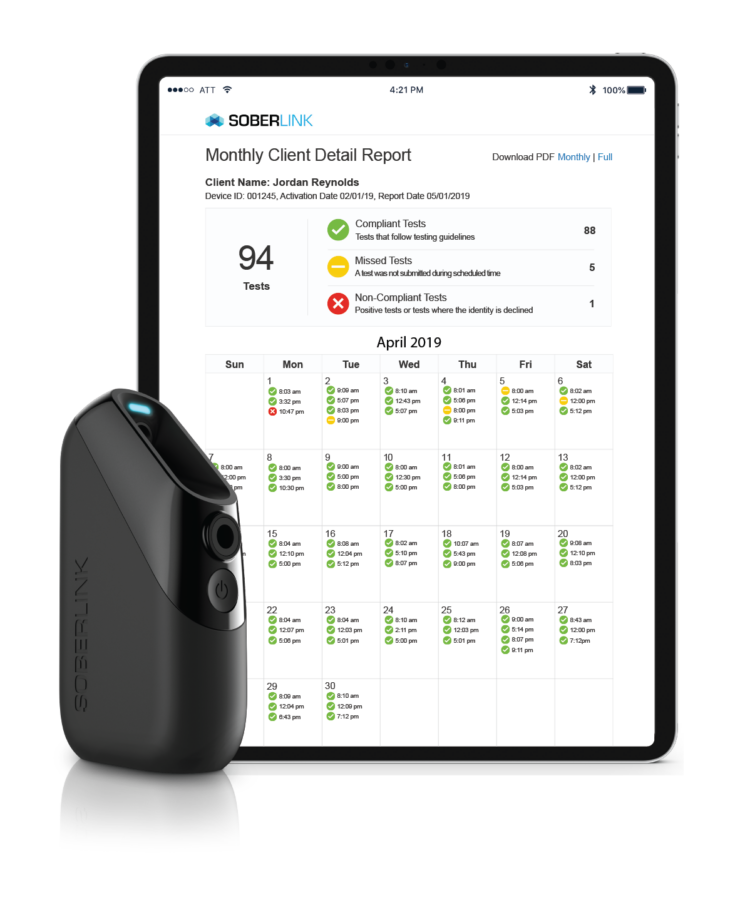
While there is a large body of research on substance abuse recovery, much of this information concerns short-term treatment methods. However, findings indicate that long-term recovery from Alcohol Abuse Disorder (AUD) can and does occur. To achieve long-term sobriety, clients who struggle with AUD should be aware of the intricacies of their condition and the best treatment methods available. Strengthening their knowledge can provide the foundation for a comprehensive plan to achieve long-term substance abuse recovery. Learn tips on how to help clients successfully manage AUD while on their journey to sustained sobriety.
Aftercare: Pathways to Long-Term Alcohol Use Disorder Recovery
Recovering from AUD will require your client to engage in a dynamic treatment process and lifelong commitment. What this process will look like for each client may vary, as clients’ triggers, stressors, and other particular circumstances will vary. However, some treatment methods have proven more effective than others and should be on your client’s radar. Combining a majority, if not all of these methods, will help strengthen your client’s sobriety over the long-term recovery period.
Ongoing Counseling
Counseling has many benefits, both in the short-term and over the long-term. One of its primary functions is to keep a client on track; counseling provides the client with a way to keep their AUD in focus while setting their intentions and goals for the future. Counselors can offer coping skills and strategies to help combat a client’s particular triggers.
Sober Living Communities
A common challenge that AUD poses involves lifestyle triggers. Being around alcohol use in any capacity can trigger someone’s AUD, causing a relapse. Clients should consider how they will structure their lifestyle and living arrangements to address the presence of alcohol in their daily lives. A sober living community is an option for those clients who need strict rules on abstinence and a completely sober environment to best cope with their AUD.
Support Groups
A preliminary study on long-term substance abuse recovery indicates that support groups play a key role in achieving sobriety. Clients’ peers, family, and friends can help mitigate stress and provide a source of hope and strength that may encourage a client over the long-term. The most common and successful example of a support group is consistently attending Alcoholics Anonymous meetings.
Relapse Prevention Planning
It is important to keep in mind that we are all human; relapses can often happen on the road to recovery. In most cases, a client’s progress will not be linear. However, it is important to have a contingency plan in place that will help a client get their sobriety back on track when these slip-ups occur.
Staying Committed to Recovery During COVID-19

Sustained recovery is difficult to achieve in the absence of a healthy routine. Good choices that turn into good habits can help alleviate your client’s stress. This means that healthy choices become increasingly easy to make as those habits become an everyday routine.
Unfortunately, the spread of COVID-19 has disrupted most facets of everyday life, and the continual changes in social policies only compound that disruption further. While likely difficult at this time, it is important for clients to maintain a healthy routine as much as possible in order to achieve their long-term sobriety goals.
One way to do so is to set up a means by which your client can remain connected and accountable. Telehealth services provide an avenue by which clients can stay accountable for their treatment methods and overall goals. Clients should also consider utilizing communications technologies to keep in touch with their support groups and counselors during the ongoing pandemic.
Telehealth Solutions That Assist in Achieving Long-Term Sobriety

A consensus of experts agree that remote alcohol monitoring can significantly reduce the chances of a relapse. Remote alcohol monitoring of this sort acts as a deterrent to alcohol use. When relapses do occur, the test results can prompt an increase in care and monitoring. These experts also identified the importance of sharing testing results, both positive and negative, with a support group or recovery circle to promote continued abstinence.
Soberlink Remote Alcohol Monitoring and Testing Device
The Soberlink alcohol monitoring system allows its users to remotely document their sobriety and share their results in real-time. As a result, clients who struggle with AUD need not schedule in-person and invasive sobriety tests to successfully monitor their alcohol usage. While this grants clients the benefit of testing on their own time and around their schedules, eliminating the need for an in-person test is especially beneficial during the current pandemic.
Soberlink also allows users to incorporate their support groups and recovery networks into their treatment methods. Involved parties can receive updates on testing results in real-time. This option helps hold clients accountable while also reinforcing their community bonds and responsibilities. If a test comes back positive, family members, friends, or clinicians can intervene. Oppositely, a negative test, provides grounds for praise and positive reinforcement from a client’s recovery circle.
Helping to implement an established routine, Soberlink provides daily scheduled testing. Clients are encouraged to submit up to three tests a day to help promote accountability, consistency, and healthier habits. Thanks to Soberlink Advanced Reporting™, treatment providers can review a client’s progress daily, weekly, or even monthly. Results are digitally compiled using timestamps and a universal color method to indicate compliant, non-compliant, and missed tests. Clinicians who utilize Soberlink are often better equipped to manage their clients’ recovery journeys, as information is automatically organized, leaving more time for treatment mapping.
Speaking to the company’s commitment to continually innovate, Soberlink devices come equipped with the latest developments in technology. Adaptive facial recognition software is accompanied by intuitive tamper-detection capabilities, helping to keep clients honest and accountable. Clinicians and recovery circles can rest assured that the test results they are receiving are legitimate.
Soberlink Testimonials
Many who struggle with AUD have utilized Soberlink while on their journey to sobriety. In the interest of personal privacy, we keep these individuals’ personal information and identities anonymous. However, after benefiting from the Soberlink system, many individuals have expressed a desire to share their progress and appreciation for their remote testing devices. For this reason, we provide a platform for these individuals to send in their testimonials in the hope that others may see and benefit from their stories.
Remote Alcohol Monitoring for Long-Term Recovery

While the expert panel agrees that remote alcohol monitoring can deter relapses in the short-term, those good habits can have lasting effects. By continually holding oneself accountable via testing and clinician support, a client who struggles with AUD may find their recovery more manageable and success more tangible.
Soberlink hopes to help clients by offering an essential and convenient tool for those struggling with AUD, especially during quarantine, isolation, and change. Clients can achieve sustained recovery in various ways; however, utilizing remote monitoring tools, such as Soberlink, can often strengthen client efforts and aid clinician support.
About the Author
Soberlink supports accountability for sobriety through a comprehensive alcohol monitoring system. Combining a breathalyzer with wireless connectivity, the portable design and technology includes facial recognition, tamper detection and real-time reporting. Soberlink proves sobriety with reliability to foster trust and peace of mind.